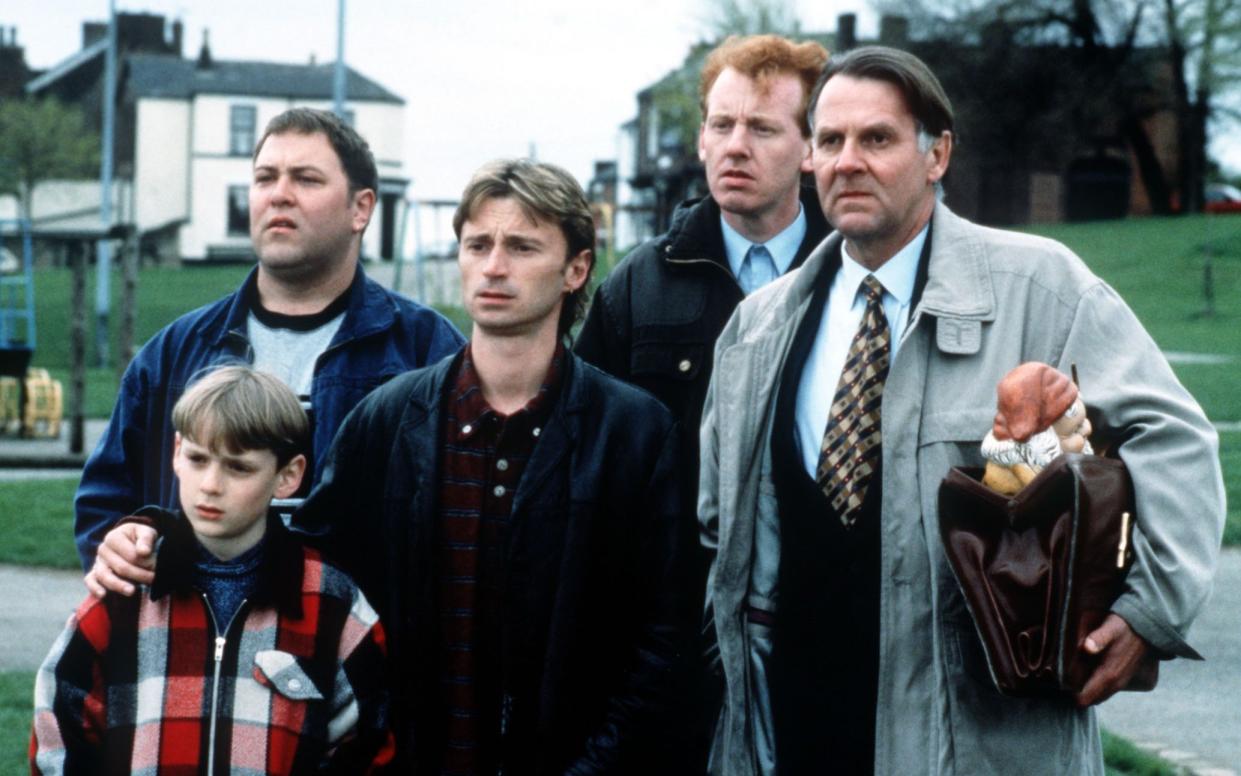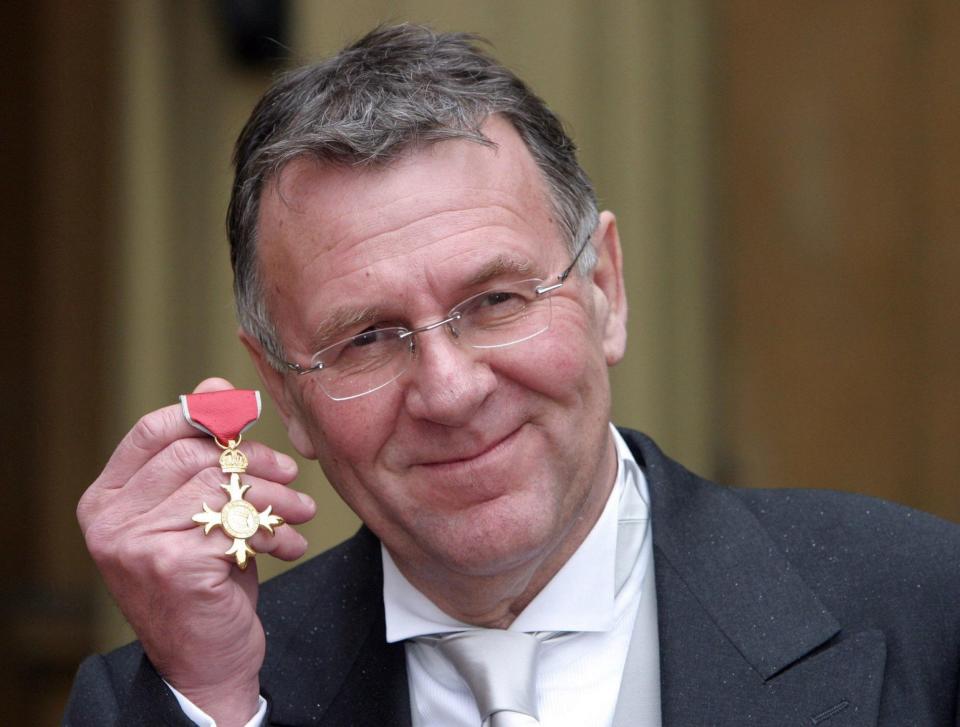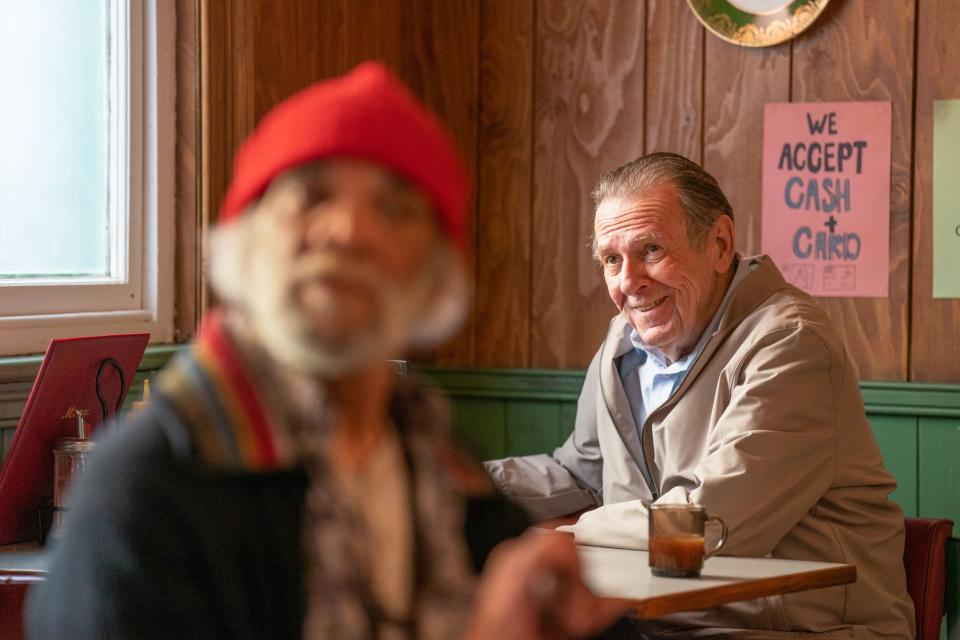Tom Wilkinson, award-winning actor best known for his role in The Full Monty – obituary

Tom Wilkinson, who has died aged 75, was frequently described as “the actor’s actor” – a label usually ascribed to one whose professionalism keeps the show on the road while other, more picturesque, performers bask in the limelight and take the plaudits.
This was certainly true of the early part of his career. For two decades Wilkinson was a regular and reliable presence on British television screens and on stage, but he was nearly 50 before the viewing public could confidently put a name to the face.
That was accomplished in 1997, with his role, in Peter Cattaneo’s comedy The Full Monty, as Gerald Cooper, the former factory foreman who joins a group of unemployed Sheffield steelworkers forging new careers in a striptease act. Wilkinson brought genuine pathos to his portrayal of the one-time man of authority reduced to standing in the welfare line with his subordinates but determined to maintain a semblance of bourgeois respectability even while his world is crumbling around him.
His performance won him a Bafta for best supporting actor and persuaded him to concentrate thereafter on roles on the big screen. He found himself increasingly in demand in the United States, and would be rewarded with two Oscar nominations.
Wilkinson was never a glamorous figure, and his Yorkshire roots never allowed him to succumb to the lures of Hollywood stardom. Rather he gave the impression of relishing the status of an outsider little interested in fame, content to seek out roles that were interesting and intelligent. Unwilling to describe his profession as “art”, he preferred to call it “a knack”. He disliked giving interviews, and resisted the suggestion that he should have his own website because he did not want people “prying into my life”.

Born in Leeds on February 5 1948, his given name was Geoffrey (later jettisoned to avoid confusion with another actor called Geoffrey Wilkinson). His father was a farmer who in 1952 took the family to Canada in search of a better life; but it never materialised, and six years later they were back in Britain, running a pub in Cornwall.
Tom’s father died when he was 16, and mother and son returned to Yorkshire, where the boy was taken under the wing of Molly Sawdon, headmistress of King James’s Grammar School at Knaresborough, who took him to the theatre and taught him good table manners. “Having wandered aimlessly through school,” he told the New York Times, “suddenly someone took an interest in me.”
In 1967 Wilkinson went to the University of Kent, where he read English and American literature and developed an interest in acting. Having ditched his vague idea of becoming a PE teacher, after graduation he won a place at Rada.
Fresh out of drama school, in 1973 Wilkinson auditioned in front of Richard (now Sir Richard) Eyre with a speech from Hamlet. Eyre declared it the best audition he had ever seen, and recruited the novice to the Nottingham Playhouse where Eyre was then artistic director.
Wilkinson honed his craft in works by Brecht, Shakespeare and David Hare among others, and appeared on stage in Birmingham, Oxford and Edinburgh. He failed to enjoy a two-year spell with the Royal Shakespeare Company, rebelling against what he described as the “snobby atmosphere”.
His first starring role on television came in the BBC’s 1983 Cold War drama Spyship, in which he played the journalist, Martin Taylor. Three years later he had more exposure as Raymond Gould, the Leeds MP ambitious to make it to No 10 in First Among Equals, a 10-part series based on the novel by Jeffrey Archer.
Over the next decade he became a familiar face, with parts in staples such as The Ruth Rendell Mysteries, Inspector Morse, Lovejoy and Prime Suspect. On the big screen he had a more challenging role as the Left-wing Roman Catholic priest Fr Matthew Thomas in Priest (1994), directed by Antonia Bird and written by Jimmy McGovern.
Also in 1994 Wilkinson produced a memorable performance as Seth Pecksniff in the BBC’s dramatisation of Martin Chuzzlewit. The next year, as the dying Mr Dashwood, he was cast alongside a galaxy of stars in Ang Lee’s film of Sense and Sensibility, which won seven Oscar nominations.
It was the feel-good movie The Full Monty, however, that changed the trajectory of his career. Until then, he later claimed, he had lacked ambition, finding it “a bit distasteful”, and when offered the part of Gerald he was unsure whether he would be right to take it. The fact that The Full Monty became an international hit convinced him that his future had to be in films: “I figured, look, the United States is where the big boys play, and if you want to sit at the table, you’ve got to go into movies. Which was a tough decision to make, because in some ways it was having to prove myself all over again.”
In short order he appeared as the Marquess of Queensbury (alongside Stephen Fry’s Oscar) in Wilde (1997); in the action comedy Rush Hour (1998); as Hugh Fennyman in Shakespeare in Love (1998); and as General Lord Cornwallis in The Patriot (2000), the American War of Independence film starring Mel Gibson.
By now Wilkinson was in hot demand as a character actor in the United States, and he won his first Academy Award nomination (for best actor) for his role as the good-natured Maine doctor Matt Fowler whose family life is seared by tragedy in Todd Field’s In the Bedroom (2001). He received his second Oscar nomination (for best supporting actor) for his performance as a deranged corporate lawyer alongside George Clooney in Michael Clayton (2007).
Wilkinson worked tirelessly into his eighth decade, and over a vast range. His many movies include Oliver Parker’s The Importance of Being Earnest (2002); Girl with a Pearl Earring (2003); Batman Begins and Ripley Underground (both 2005); Valkyrie (2008), about the German army plot to assassinate Hitler in 1944; Duplicity (2009); The Debt (2010), about Mossad agents seeking to capture a Nazi war criminal during the Cold War; the black comedy Burke and Hare (also 2010); The Best Exotic Marigold Hotel (2011); The Grand Budapest Hotel (2014); Selma (2014), in which he was President Lyndon B Johnson in the story of Martin Luther King’s campaign for civil rights, and Denial (2016), based on the Holocaust historian Deborah Lipstadt’s account of being pursued through the libel courts by Holocaust denier David Irving, in which he played the barrister Richard Rampton.
Wilkinson’s American roles proved a rich seam. He won an Emmy for his performance as Benjamin Franklin in HBO’s 2008 miniseries John Adams; and in the same year was nominated for an Emmy and a Golden Globe for his role as George W Bush’s chief legal adviser James Baker in Recount (2008), about the controversy surrounding the Florida poll in the 2000 US presidential election. In 2011 he starred to great acclaim as the patriarch Joe Kennedy in the television miniseries The Kennedys (2011); Wilkinson’s wife, Diana Hardcastle, played Joe’s wife, the formidable Rose.

Last year (2023), he and other former Full Monty cast members reprised their roles in an eponymous US-British television series in which the original band of brothers, 20 years on, try to navigate Sheffield’s crumbling public services.
Wilkinson always sought to bring intelligence and, where appropriate, gravity to his parts. In his personal life, however, he had simple tastes, claiming that he was most at home watching episodes of Friends or Midsomer Murders. He also enjoyed a game of golf.
Tom Wilkinson was appointed OBE in 2005.
In 1988 he married Diana Hardcastle. She survives him with their two daughters.
Tom Wilkinson, born February 5 1948, died December 30 2023
